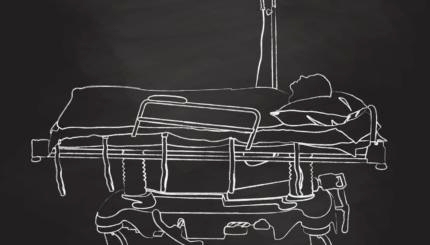Judaism offers a host of mourning practices to help cope with the death of a relative (parent, sibling, spouse, child). Here are some tips for responding to deaths of people who feel close, when the Jewish mourning practices like shiva and Kaddish are not, strictly speaking, required.
Mourning for a Friend
Whether expected or not, the death of a friend is a devastating loss which can lead to heightened emotions and, at times, depression. It is important to acknowledge and deal with these emotions early on and allow oneself time to grieve. Joining relatives of the deceased in their mourning traditions and comforting them in a respectful manner is a wonderful way to begin the healing process. Focusing on memories, rather than the loss, and doing something in the friend’s honor can also be helpful.
If a professional, such as a family doctor, lawyer, or accountant with whom there is a close relationship dies, it is appropriate to inquire with the family about services and making a shiva call. A donation or condolence item for mourners is a meaningful gesture and a symbol of appreciation for the years of service provided by the decedent. A donation to a designated charity, hospital, or other institution that was important to the individual shows the mourning family that the deceased had a lasting impact on a person’s life.
When an Ex-Spouse Dies
Divorces and separations are often difficult and emotionally damaging for families. Regardless of the circumstances, it is important to acknowledge and respect the time shared with the individual. Former spouses should be prepared to attend services, make a shiva call, and comfort the family in an appropriate and thoughtful manner. A former spouse’s behavior is even more important when children are involved. It is crucial that an appropriate and respectful example of honoring the deceased and comforting the family be set by the parent. Past issues, hard feelings, or difficult times with the former spouse who has died should not be discussed during the grieving period.

Help us keep Jewish knowledge accessible to millions of people around the world.
Your donation to My Jewish Learning fuels endless journeys of Jewish discovery. With your help, My Jewish Learning can continue to provide nonstop opportunities for learning, connection and growth.
Many customs associated with Jewish mourning differ according to the grieving family’s spiritual traditions and beliefs. As a former member of the deceased’s immediate family, a former spouse should be mindful of the traditions and practices that the family upholds.
Reprinted with permission from shiva.com
Sign up for a Journey Through Grief & Mourning: Whether you have lost a loved one recently or just want to learn the basics of Jewish mourning rituals, this 8-part email series will guide you through everything you need to know and help you feel supported and comforted at a difficult time.
Looking for a way to say Mourner’s Kaddish in a minyan? My Jewish Learning’s daily online minyan gives mourners and others an opportunity to say Kaddish in community and learn from leading rabbis.
Kaddish
Pronounced: KAH-dish, Origin: Hebrew, usually referring to the Mourner’s Kaddish, the Jewish prayer recited in memory of the dead.
shiva
Pronounced: SHI-vuh (short i), Origin: Hebrew, seven days of mourning after a funeral, when the mourner stays at home and observes various rituals.



